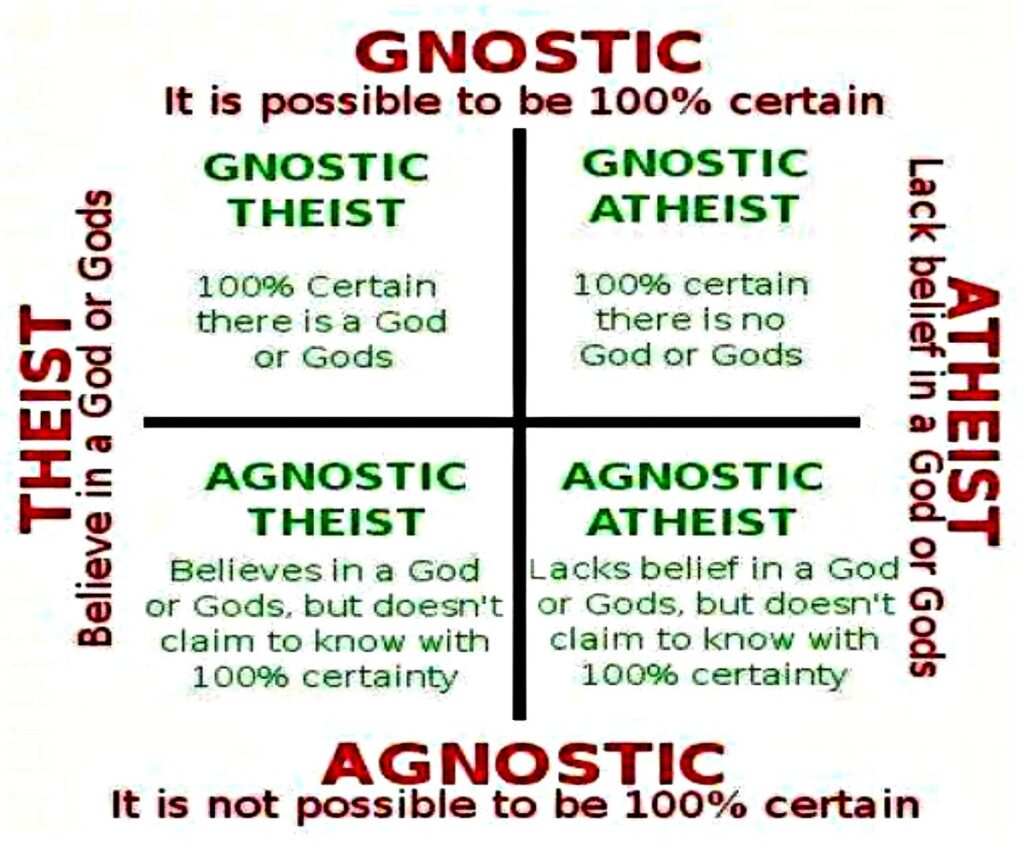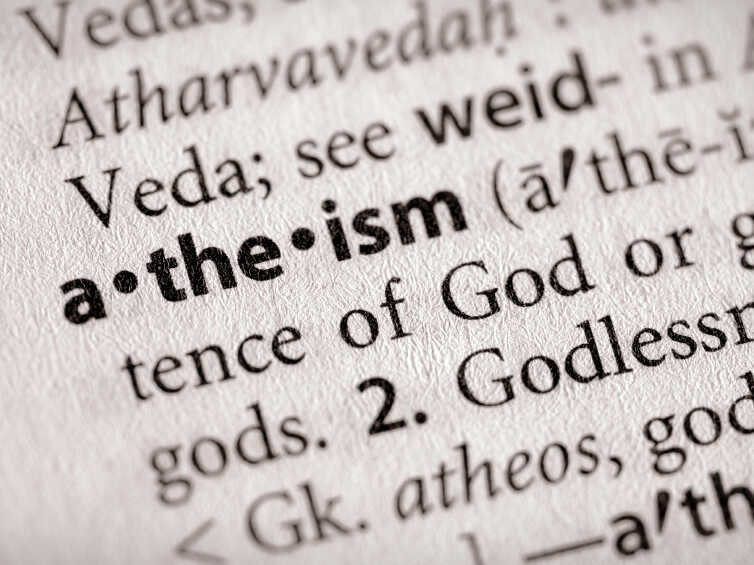In the context of religious and spiritual belief—or non-belief — there is a spectrum of categories to define the various positions that people take. We seek here to simplify the definitions.
The word deist refers to someone who believes in God. But a deist believes that while God created the universe, natural laws determine how the universe then plays out. This relates to
Sir Isaac Newton’s clockwork universe theory, which compares the universe to a clock that has been wound up and set in motion by God, but is governed by the laws of science. This approach raises many problematic questions that we will address separately.
Atheist v Theist
An atheist doesn’t believe in the existence of a god or divine being, and hence the eschew the validity of religions that worship a God. The word atheist originates with the Greek ‘atheos‘, which is built from the roots a- ‘without’ and theos – ‘a god’. Atheism is the doctrine or belief that there is no god.
A theist is of course the opposite of an atheist. Theists believe in the existence of a god, or even multiple gods.
Agnosticism
An agnostic is a person who neither believes nor disbelieves in a god or religious doctrine. Agnostics sit on the fence, asserting that it’s impossible to know how the universe was created and whether or not divine beings exist. The word agnostic was comes from the Greek ágnōstos, which means ‘unknown or unknowable’. The doctrine is known as agnosticism.


